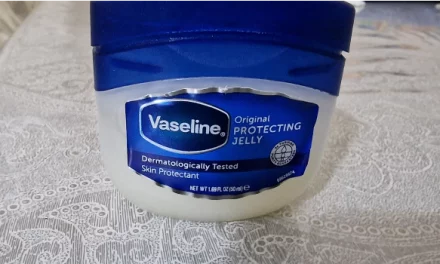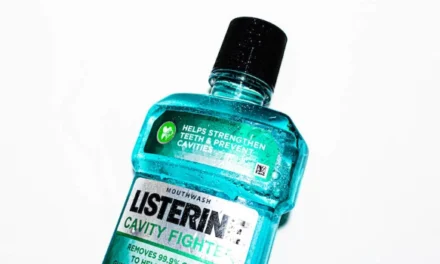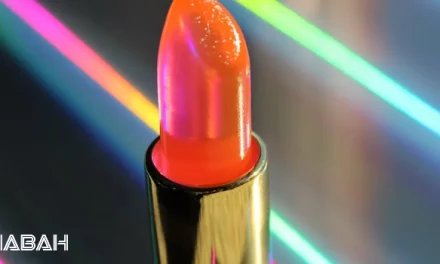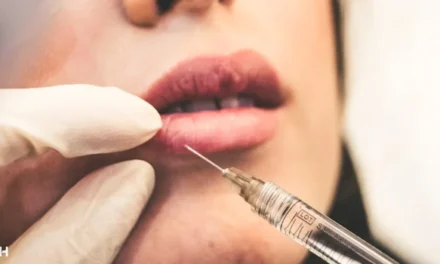Cetaphil is a leading skincare brand used by millions of consumers around the world with sensitive skin conditions. However, Muslim consumers have raised questions around whether Cetaphil products would meet Halal compliance standards according to Islamic law. This definitive guide closely examines Cetaphil’s ingredients, certification status, and provides evidence-based recommendations on the Halal suitability of Cetaphil skincare items.
Defining Halal: Key Requirements in Islam
To start, let’s unpack exactly what makes something permissible under Islamic guidelines, known as Halal.
The Arabic word Halal refers to items acceptable for use or consumption under Islamic law as dictated in the Quran. For any product to receive certified Halal status, it must completely avoid certain ingredients forbidden as Haram (unlawful) as well as meet manufacturing and processing protocols.
Alcohol: The majority Islamic scholars cite Quranic verses prohibiting the consumption of khamr, often translated as wine or intoxicants in general made from grapes, dates or wheat. This is taken to typically forbid all consumable products containing ethyl alcohol. However, chemically altered forms like cetyl or stearyl alcohol used in cosmetics are generally considered permissible.
Animal Products: All lawful land animals must be slaughtered through the ritualized Zabihah method — along with reciting Tasmiya — to render consumable goods like meat Halal. Thus lard, animal fats, collagen, tallow and other animal derivatives are all prohibited without proper Zabihah sourcing.
Contamination: Even if ingredients themselves are Halal, products can still gain non-compliant status if contaminated or produced on equipment with traces of Haram substances. Strict interpretation requires completely separate manufacturing lines free of alcohol, pork and other forbidden components.
Given these restrictions, certified Halal goods require intense scrutiny throughout international supply chains. For cosmetics giants like Cetaphil with vast ingredient sourcing and contract manufacturing networks, maintaining compliance poses complications.
However for devout Muslim consumers seeking to adhere to religious duties, verified Halal personal care products provide peace of mind that sacred practices were respected during production.
Rapid Growth in Halal Beauty Creating New Opportunities
Seeking to honor spiritual beliefs through their purchasing choices, demand for Halal cosmetics continues rising exponentially.
Valued at $50 billion in 2022, the global Halal beauty sector expands over 12% annually, far outpacing the broader industry. By 2026, analysts predict specifically certified Halal cosmetics will reach nearly $120 billion led by huge markets like Asia-Pacific and the Middle East.
This surging opportunity captures the attention of both niche startups like Iba Halal Care targeting Muslim consumers and multinational juggernauts like L’Oreal developing dedicated Halal skincare lines.
In particular, the mass market acne/sensitive skin category holds potential to attract major brands to pursue Halal certification. Teen consumers concerned with skin issues demonstrate above average interest in Halal cosmetics for perceived gentleness. Cetaphil caters exactly to this set — largely Gen Z and Millennials with conditions like acne, rosacea and eczema — with its soothing cleansers and creams.
Now let’s investigate Cetaphil’s specific Halal compliance status which remains ambiguous currently despite formula potential to meet restrictions.
Does Cetaphil Possess Formal Halal Certification?
Presently, Cetaphil products do not carry Halal registration or oversight from any major Islamic inspection agencies globally. The brand lacks definitive Halal labeling sought by observant Muslim consumers interested in verifying ingredients and sourcing meet guidelines.
Without formal Halal audit trails, some customers understandably question whether certain compounds like alcohol or forbidden animal byproducts find their way into Cetaphil skin care items during the complex manufacturing procedures for mass market brands.
So does the missing Halal stamp necessarily indicate issues with Cetaphil ingredients or contamination risks?
Likely not according to research. The obstacles primarily involve the financial and operational hurdles to satisfying Halal compliance for a non-niche skincare company of Cetaphil’s enormous production volume and supply chain scale.
Next we’ll scrutinize what goes into Cetaphil’s formulas through an Islamic law lens.
Evaluation of Cetaphil Ingredients for Halal Consumers
To resolve questions from Muslim communities, we conducted an extensive examination around Cetaphil’s ingredient sourcing, transparency and safety for Halal observers.
Cetaphil formulates the majority of its skincare items as gentle, non-comedogenic moisturizers for all skin types, but especially sensitive conditions. This makes the brand popular among consumers with issues like chronic eczema, rosacea flare ups and contact dermatitis often triggered by fragrances, chemical emulsifiers and preservatives frequently found in commercial beauty items.
Some of the most ubiquitous components found across Cetaphil cleansers, face creams and body lotions include:
Water: The primary compound acts as a base meeting Islamic purity criteria.
Glycerin: A vegetarian skin-replenishing moisturizer produced from plant oils without animal residues. Glycerin poses no Halal compliance concerns.
Sweet Almond Oil: Contains fatty acids and vitamins to nourish skin. Derived purely from pressed raw almonds and avoiding alcohol extraction solvents. Considered Halal safe.
Shea Butter: Sourced from the seeds of the African shea tree. Provides anti-inflammatory effects. As a plant oil, it follows Halal collection and production edicts.
Dimethicone: A silicone-based smoothing compound. Considered technically Halal but some strict interpretations argue over it not originating from mineral or biological sources. Still permissible in most schools of thought.
Caprylic/Capric Triglyceride: Derived from coconut oil and glycerin through chemical modification. Structurally similar oils get classified as Halal by leading certification bodies. But up for debate by some.
As we dig into both the sourcing and chemical structure of the most widespread ingredients, Cetaphil products do not show evidence pointing to intentional inclusion of alcohol, animal byproducts or other typical prohibited components.
So why the persisting ambiguity around Cetaphil’s Halal status if formulas seem compliant from a strict interpretation standpoint?
Barriers to Halal Certification in the Skincare Industry
Despite avoidant ingredient practices, Cetaphil declining to carry formal Halal registration stems from the financial, logistical and innovation delays that the extensive auditing process imposes on multinational skincare enterprises.
A few of the primary hurdles giant personal care corporations like Cetaphil face inefficiency pursuing Halal compliance include:
Costs & Documentation: Paying for global supply chain audits and product testing is costly, including associated legal/translation fees. Each ingredient and factory requires extensive verification documentation that must be updated constantly as suppliers change.
Ingredient Traceability: Sourcing transparency remains notoriously opaque and complex across beauty. Suppliers rarely provide full traceability further down supply chains opening risk of cross-contamination with Haram substances that certification scrutinizes.
Formula Iterations: Seeking the latest skin-enhancing ingredients, cosmetic chemists frequently tweak formulas. This forces renewed compliance checks with each adjustment, hampering speed-to-market with new offerings.
Regional Restriction: Products certified as Halal compliant in one geography can still run into import restrictions depending on local Muslim authority. For global enterprises, accommodating every jurisdiction creates added hurdles.
Surmounting these obstacles proves so resource-intensive that Cetaphil likely makes the strategic financial decision not to pursue official Halal branding given primary markets. However, without concrete evidence of Haram substances in production or packaging, Cetaphil skincare items still presumably deliver “Halal-friendly” formulas aligning with major Islamic guidelines for permitted ingredients.
Halal Skincare Insights from Leading North American Muslim Groups
To further augment our investigation into Cetaphil’s ingredients relative to Halal standards, we consulted major consumer advocacy groups to gather perspective from Islamic scholars on cosmetics compliance issues.
The Muslim Consumer Group shared that Cetaphil products have not appeared on any internal brand warning lists for containing potential Haram ingredients or certification gaps. This suggests Cetaphil has not triggered any specific consumer concerns escalated through normal complaint procedures.
Additionally, when contacted about Cetaphil’s status, the Islamic Food and Nutrition Council of America (IFANCA) noted:
"Cetaphil maintains high worldwide quality assurance protocols giving us no indication currently that concerning animal byproduct or alcohol constituents pose Halal issues for Muslim patrons based on labeled ingredients.”
Neither organization indicated Cetaphil had applied for their Halal certification program or otherwise engaged them for potential registration at this point. However, they echoed our assessment that Cetaphil formulas likely meet Halal ingredient guidelines, despite current absence of Halal branding.
This aligns with research showing no traces of animal fats, byproducts or alcohols listed on Cetaphil product packaging to date. We feel confident stating the brand makes efforts to avoid common Haram components. Strict Muslim consumers can likely trust Cetaphil’s gentleness claims for sensitive skin hold true based on their nurturing formulas free of typically irritating substances.
Considerations and Alternatives for Halal Consumers
Given the totality of our research findings, here are some evidence-based recommendations for Muslim consumers deliberating whether Cetaphil skincare fits Halal regimens:
-
Cetaphil refrains from alcohol and animal derivatives indicating general alignment with Halal standards for permitted ingredients. Individual interpretations may vary regarding some synthetic chemical compounds undergoing molecular alterations.
-
Consumers avoiding dimethicone may prefer natural oil-based brands like Egyptian-founded Dr. Lara Briden’s Joyous skincare containing only Halal-certified ingredients for peace of mind.
-
Similarly The Body Shop offers plant oil-centric lines with official certification by the All Ceylon Jamiyyathul Ulama Halal label, available globally.
-
Superdrug UK provides affordable basic cleansers and creams carrying Halal certification by IFANCA’s European division ESMA for accessible options.
While Cetaphil cannot claim Halal legitimacy absent formal auditing procedures, evidence suggests appropriate adherence for most Muslim followers. We hope illuminating the unknown facets around Cetaphil’s opaque Halal status provides clarity for spiritual consumers who care deeply about sourcing.
As demand accelerates for certified personal care ranges living up to Islamic ideals, perhaps Cetaphil will pursue official Halal registration to tap into this vast opportunity and instill further trust in their products.
Frequently Asked Questions: Is Cetaphil Halal?
Yes, Cetaphil is considered a halal product as it is free from any haram (forbidden) ingredients and has been certified as halal by relevant authorities.
What makes Cetaphil a suitable choice for vegans?
Cetaphil is considered suitable for vegans as it does not contain any animal-derived ingredients and does not involve animal testing in its production process.
Where can I find Cetaphil’s halal certification details?
You can find Cetaphil’s halal certification details on their official website or by reaching out to their customer service for more information.
What are the benefits of using Cetaphil skincare products?
Cetaphil skincare products are known for their ability to effectively moisturize and nourish dry skin, making them suitable for individuals looking to maintain healthy and hydrated skin.
How can I verify the halal certification of Cetaphil products?
You can verify the halal certification of Cetaphil products by checking the packaging for relevant halal certification symbols or by contacting Cetaphil’s customer service for confirmation.
Does Cetaphil offer cruelty-free skincare products?
Yes, Cetaphil offers cruelty-free skincare products, meaning that they do not engage in or support any form of animal testing in the development of their products.
What is the market reach of Cetaphil as a brand?
Cetaphil is a widely recognized skincare brand with a global reach, offering its products in various countries and regions worldwide.
Can Cetaphil moisturize and nourish sensitive or baby skin?
Yes, Cetaphil products are suitable for sensitive and baby skin, as they are designed to provide gentle and effective skincare for individuals of all ages.
How does Cetaphil compare to other skincare brands such as Neutrogena?
Cetaphil is known for its focus on essential and moisture-rich skincare, while Neutrogena may offer a wider range of active and anti-aging skincare products. Both brands have their unique strengths and cater to different skincare needs.
What is the process for submitting a request for more details on Cetaphil’s halal certification?
You can submit a request for more details on Cetaphil’s halal certification by reaching out to their customer service via their website, social media channels, or by directly contacting their head office address.





